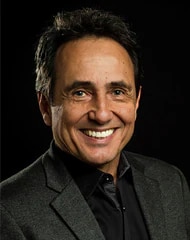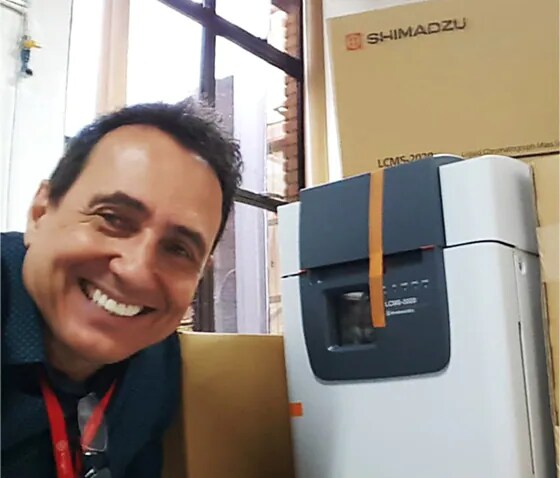Celebrating 50 Years of MS Innovation - User interviews February 2020 - Marcos N. Eberlin
On the occasion of Shimadzu's 50th year of producing mass spectrometry instruments, we talk to researchers using Shimadzu MS instruments in their daily work and ask about their expectations for Shimadzu and the future of MS technology.

Marcos N. Eberlin
MackMass – Mackenzie Laboratory for Mass Spectrometry –
Mackenzie Presbyterian University, São Paulo Brazil
Main field of study:
Microorganisms
Easy ambient sonic-spray ionization (EASI)
1. How did you become familiar with Shimadzu?
When I began my studies in mass spectrometry, I promptly got to know about the company and its many products. During my career, I have had the pleasure to acquire several Shimadzu instruments and experienced their robustness and superb quality. The latest instrument is a monoquadrupole mass spectrometer that I just received in my new laboratory. I am also looking forward to acquire, in the nearest possible future, the MALDImini-1 and a QTOF from Shimadzu, to complete a powerful instrumentation set.
2. What is your main field of research, and how are you utilizing Shimadzu equipment?
My laboratory has been actively involved in ambient mass spectrometry (MS) and specifically in applying a new ionization technique (EASI) that we have developed in many fields such as forensic chemistry and quality control. We have also worked on microorganism identification, studies of the mechanisms of organic reactions, and ion imaging.
3. What are your reasons for choosing Shimadzu equipment?
First, because Shimadzu staff in Brazil are always very friendly and cooperative, trying to facilitate acquisition and access to instrumentation and training as much as possible. Second, Shimadzu instruments are no doubt very robust and easy to use, delivering no less or more than we need. They provide us with the best compromise between endurance and results.
4. What trends are you seeing in your field with regards to the use of mass spectrometry?
I see mass spectrometry moving more and more from chemical laboratories to hospitals and medical clinics, helping doctors to cure and diagnose many different pathologies.
5. What are your expectations for Shimadzu and for MS technology in general in the future?
To keep doing what the company has been doing for the last decades. Building state-of-the-art but robust and easy to use instrumentation, treating customers not simply as customers but as true collaborators in the quest to build a better society with the help of science.



